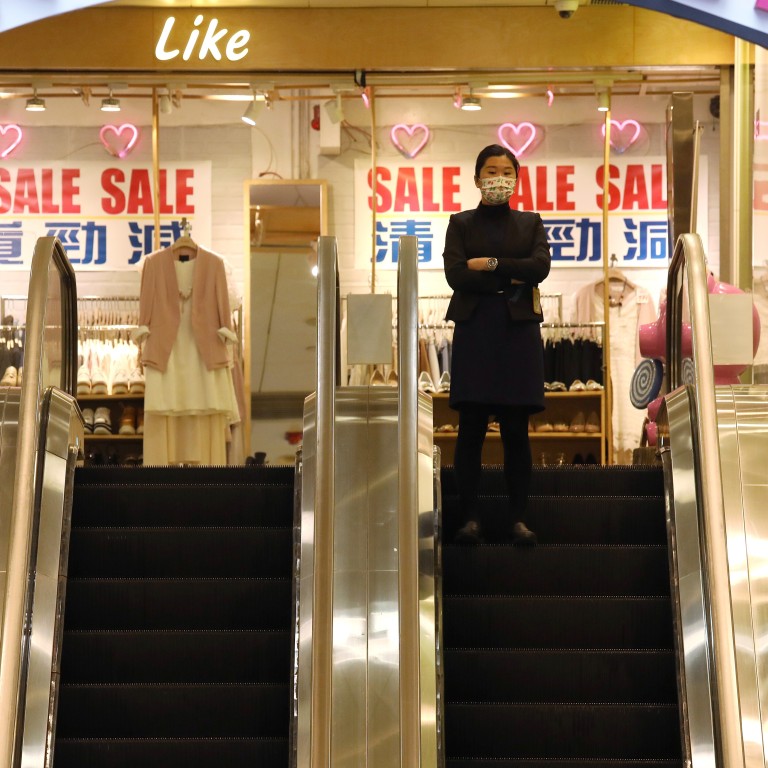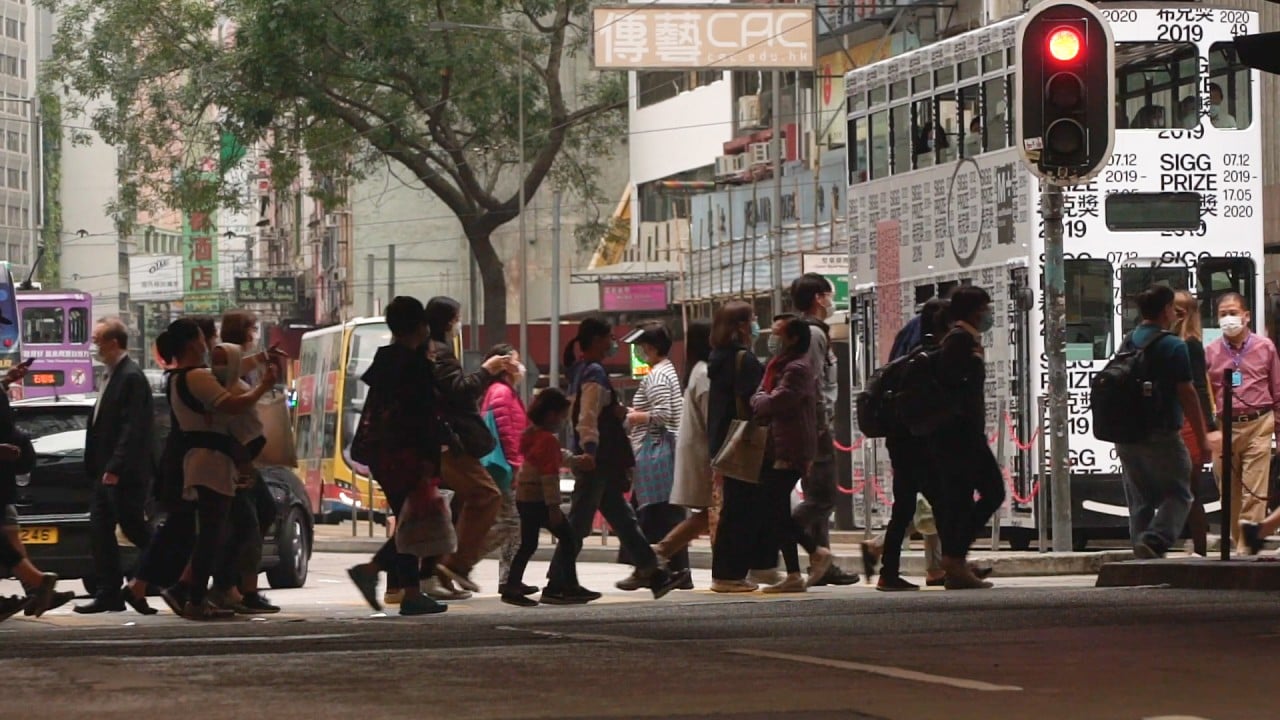
Hong Kong retail shrinks by a third in May but rate of decline improves as coronavirus crisis stabilises
- Consumer sales down 32.8 per cent by value in May year on year, a less dramatic drop than for April, official figures show
- It is the 16th straight month of decline but retailers predict the level of contraction will continue to narrow
Consumer spending that month stood at HK$26.8 billion (US$3.5 billion), according to provisional figures the Census and Statistics Department released on Tuesday, falling 32.8 per cent from May 2019 to mark the 16th straight month of decline.
The year-on-year reduction represents an improvement on the 36.1 per cent recorded in April, as city retailers predict the level of contraction will continue to narrow in the next few months.
Hong Kong retail sales still falling but April figures offer signs of hope
Over the first five months of this year, the provisional value of sales plummeted 34.8 per cent from the same stretch in 2019, to HK$134.36 billion.
A government spokesman said the sharp fall in May was due to inbound tourism remaining at a standstill, as well as a weak job market and earning conditions.
“Nonetheless, the decline narrowed further from that in April thanks to the stabilised local epidemic situation and consequential easing of social-distancing measures,” he said.
In May, sales of jewellery, watches and clocks, and valuable gifts fell nearly 70 per cent from the same month last year, while medicines and cosmetics saw a 62 per cent decrease.
But the picture was improving in some categories such as clothing, as well as electrical goods and other consumer durable products, dropping 35.6 per cent and 5.1 per cent respectively – much less than the 63.8 per cent and 21.7 per cent recorded in April.

The sales for commodities in supermarkets rose 7.3 per cent in May from a year earlier, while sales of furniture and fixtures climbed 6.5 per cent.
Hong Kong Retail Management Association chairwoman Annie Tse Yau On-yee said it would be reasonable to expect a narrowing in the contraction of retail sales in the second half of this year because the base figures recorded in the last six months of 2019 were weak during the anti-government protests.
“But it doesn’t mean the sector will have a rebound or a recovery,” Tse said.
She said most of her members surveyed noted an improvement in footfall recently, but that consumer sentiment remained weak.
Hong Kong retail landlord cuts base rent close to zero for tenants
Companies would still continue to put their staff on unpaid leave, impose salary cuts or even shed staff, Tse said, although the government’s wage subsidy scheme might have slightly improved the outlook for lay-offs.
Under the HK$81 billion Employment Support Scheme, the government pays employers 50 per cent of their staff salaries for six months, with the monthly subsidy per worker capped at HK$9,000.
Earlier this month, Victoria’s Secret closed its flagship store in the city and Greek jeweller Folli Follie decided to shut all its Hong Kong shops.

02:02
Coronavirus: Hong Kong to ease social-distancing rules as city sees record 8.9% economic slump
Tse said some global brands told the group the main factor was the city’s high rents.
Citing a survey conducted by other business chambers, she said 60 per cent of the 91 companies interviewed said they had closed or planned to shut some of their outlets, while nearly half of the firms saw their sales drop 70 per cent or more between February and April.
She noted rent relief measures from landlords were still “not ideal”. “Obviously, the rent cut percentage offered by quite a number of developers is getting lower,” she said.

